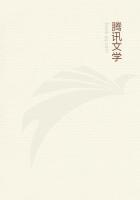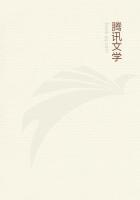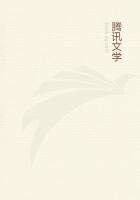According to my proposal, I shall now proceed to such birds (singing birds strictly so called) as continue in full song till after Midsummer; and shall range them somewhat in the order in which they first begin to open as the spring advances.
1. Woodlark, Raii nomina: Alauda arborea:
In January, and continues to sing through all the summer and autumn.
2. Song-thrush, Turdus simpliciter dictus:
In February and on to August, reassume their song in autumn.
3. Wren, Passer troglodytes:
All the year, hard frost excepted.
4. Red-breast, Rubecula:
Ditto.
5. Hedge-sparrow, Curruca:
Early in February to July the 10th.
6. Yellow-hammer, Emberiza flava:
Early in February, and on through July to August the 21st.
7. Skylark, Alauda vulgaris:
In February, and on to October.
8. Swallow, Hirundo domestica:
From April to September.
9. Black-cap, Atricapilla:
Beginning of April to July 13.
10. Titlark, Alauda pratorum:
From middle of April to July the 16th.
11. Blackbird, Merula vulgaris:
Sometimes in February and March, and so on to July the twenty third; reassumes in autumn.
12. White-throat, Ficedulcae affinis:
In April and on to July 23.
13. Goldfinch, Carduelis:
April and through to September 16.
14. Greenfinch, Chloris:
On to July and August 2.
15. Less reed-sparrow, Passer arundinaceus minor:
May, on to beginning of July.
16. Common linnet, Linaria vulgaris:
Breeds and whistles on till August; reassumes its note when they begin to congregate in October, and again early before the flock separate.
Birds that cease to be in full song, and are usually silent at or before Midsurnmer:
17. Middle willow-wren, Regulus non cristatus:
Middle of June: begins in April.
18. Red-start, Ruticilla:
Middle of June: begins in May.
19. Chaffinch, Fringilla:
Beginning of June: sings first in February.
20. Nightingale, Luscinia:
Middle of June: sings first in April.
Birds that sing for a short tune, and very early in the spring:
21. Missel-bird, Turdus viscivorus:
January the 2nd, 1770, in February. Is called in Hampshire and Sussex the storm -cock, because its song is supposed to forebode windy wet weather: is the largest singing bird we have.
22. Great tit-mouse, or ox-eye, Fringillago:
In February, March, April: reassumes for a short time in September.
Birds that have somewhat of a note or song, and yet are hardly to be called singing birds:
23. Golden-crowned wren, Regulus cristatus:
Its note as minute as its person; frequents the tops of high oaks and firs; the smallest British bird.
24. Marsh titmouse, Parus palustris:
Haunts great woods; two harsh sharp notes.
25. Small willow-wren, Regulus non cristatus:
Sings in March and on to September.
26. Largest ditto, Ditto:
Cantat voce stridula locustae: from end of April to August.
27. Grasshopper-lark, Alauda minima voce locustae:
Chirps all night, from the middle of April to the end of July28. Martin, Hirundo agrestis:
All the breeding time; from May to September.
29. Bullfinch, Pyrrhula:
30. Bunting, Emberiza alba:
From the end of January to July.
All singing birds, and those that have any pretensions to song, not only in Britain, but perhaps the world through, come under the Linnaean ordo of passeres.
The above-mentioned birds, as they stand numerically, belong to the following Linnaean genera.
1, 7, 10, 27.
Alauda.
2, 11, 21.
Turdus.
3, 4, 5, 9, 12, 15, 17, 18, 20, 23, 25, 26.
Motacilla.
6, 30.
Emberiza.
8, 28.
Hirundo.
13, 16, 19.
Pringilla.
22, 24.
Parus.
14, 29.
Loxia.
Birds that sing as they fly are but few:
Skylark, Raii nomina.
Alauda vulgaris:
Rising, suspended, and falling.
Titlark, Alauda pratorum:
In its descent; also sitting on trees, and walking on the ground.
Woodlark, Alauda arborea:
Suspended; in hot summer nights all night long.
Blackbird, Merula:
Sometimes from bush to bush.
White-throat, Ficedulae affinis:
Uses when singing on the wing odd jerks and gesticulations.
Swallow, Hirundo domestica:
In soft sunny weather.
Wren, Passer troglodytes:
Sometimes from bush to bush.
Birds that breed most early in these parts:
Raven, Corvus:
Hatches in February and March.
Song-thrush, Turdus:
In March.
Blackbird, Merula:
In March.
Rook, Cornix frugilega:
Builds the beginning of March.
Woodlark, Alauda arborea:
Hatches in April.
Ring-dove, Palurnbus torquatus:
Lays the beginning of April.
All birds that continue in full song till after Midsummer appear to me to breed more than once.
Most kinds of birds seem to me to be wild and shy somewhat in proportion to their bulk; I mean in this island, where they are much pursued and annoyed: but in Ascension-island, and many other desolate places, mariners have found fowls so unacquainted with an human figure, that they would stand still to be taken; as is the case with boobies, etc. As an example of what is advanced, Iremark that the golden-crested wren (the smallest British bird) will stand unconcerned till you come within three or four yards of it, while the bustard (otis), the largest British land fowl, does not care to admit a person within so many furlongs.
I am, etc.
Letter III
To The Honourable Daines BarringtonSelborne, Jan. 15, 1770.
Dear Sir,It was no small matter of satisfaction to me to find that you were not displeased with my little methodus of birds. If there was any merit in the sketch, it must be owing to its punctually. For many months I carried a list in my pocket of the birds that were to be remarked, and, as I rode or walked about my business, I noted each day the continuance or omission of each bird's song; so that I am as sure of the certainty of my facts as a man can be of any transaction whatsoever.
I shall now proceed to answer the several queries which you put in your two obliging letters, in the best manner that I am able.
Perhaps Eastwick, and its environs, where you heard so very few birds, is not a woodland country, and therefore not stocked with such songsters. If you will cast your eye on my last letter, you will find that many species continued to warble after the beginning of July.















